At Curious Theatre, Christy Montour-Larson’s production shines in design and performance, though the satire loses steam after its high point in a virtual town hall.
On Thursday, a closely watched CDC advisory panel voted to change recommendations for a measles vaccine that also covers varicella, or chickenpox, reversing decades of preestablished public health guidance. The following day, the panel limited access to the COVID-19 vaccine. These moves, pushed by Health Secretary Robert F. Kennedy Jr.’s newly appointed, vaccine-skeptical committee, epitomize the uncertainty now surrounding routine immunizations.
Against this backdrop, Curious Theatre Company’s season 28 opener — Jonathan Spector’s vaccine comedy about the chaos that surrounds a mumps outbreak, Eureka Day — feels almost uncomfortably prescient.
First produced in 2018 and awarded the 2025 Tony for Best Revival, the satire takes place in a progressive private school in Berkeley, California, where consensus-driven governance collides with a public health crisis at the school. What begins as earnest inclusivity devolves into bitter confrontation, forcing both the fictional board and today’s audiences to ask: What happens when public health crashes into personal conviction?
Directed by Christy Montour-Larson, the production delivers sharp laughs, strong performances and some eerily relevant commentary, but it also drags in places and feels slightly dated in today’s vaccine climate.
A convincing world
Montour-Larson situates the play in a space that looks real enough to walk into. Scenic designer Markas Henry has built a lavish school library that immediately immerses the audience: shelves lined with children’s books, a central display celebrating social justice titles and oversized glass windows at the back.
Kate Bashore’s lighting turns those windows into subtle timekeepers, moving the day along with shifting light. The room is so detailed that the audience feels steeped in the culture of the Eureka Day school before the actors even speak.
It is immersive, funny and slightly claustrophobic all at once, making it the ideal setting for five well-meaning adults to unravel during meetings of the school’s executive committee.
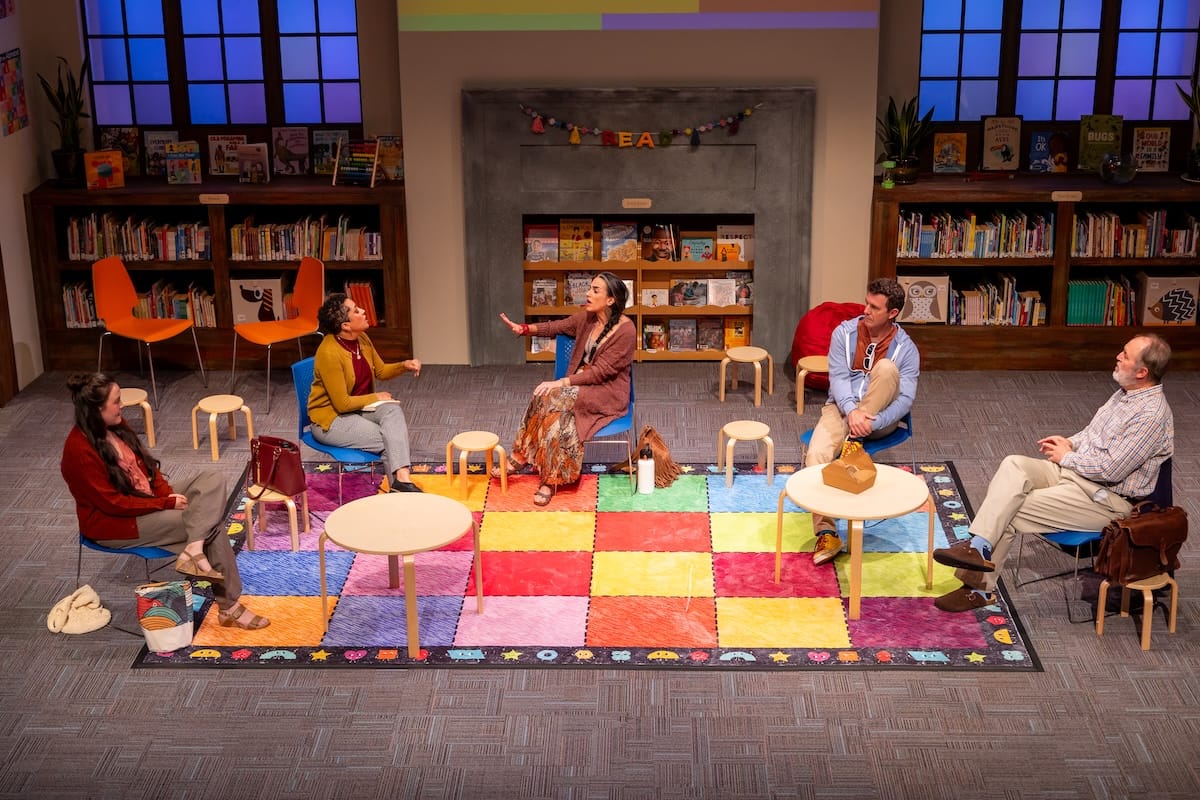
Markas Henry’s scenic design is a standout, immediately transporting the audience into the Eureka Day School library. | Photo: RDGPhotography
The play follows the members of this committee, including Eli (Josh Robinson), a tech-bro stay-at-home dad; Don (Erik Sandvold), the affable dealmaking school principal; Suzanne (Karen Slack), a parent with fierce anti-vaccine beliefs; Meiko (Rhianna DeVries), a single mother whose child becomes ill; and Carina (Kristina Fountaine), the newest member tasked with bringing a fresh perspective.
The story begins with the group debating whether to expand racial categories on an application form. This scene, albeit sluggish, establishes that the board takes pride in governing by consensus, an ethos that embodies the progressive utopia of the Berkeley private school. But once the outbreak hits, their feel-good consensus model collapses under the weight of real stakes.
The committee crumbles as parents clash over whether to require vaccines, including in a hilariously staged virtual town hall where polite process gives way to digital anarchy.
Projections designer Topher Blair deserves special mention here: The scrolling flood of chat comments projected above the stage, ranging from petty sniping to conspiratorial rants, drowns out the board’s dialogue. The audience roars with laughter as the discussion devolves into chaos, but the point is chillingly clear: Online noise can overwhelm reason.
Performances that humanize the debate
Robinson’s Eli, a stay-at-home dad and early Facebook employee, perfectly captures Bay Area tech-bro smugness with an air of detached affluence. Yet the script’s subplot about his affair with Meiko feels underdeveloped, distracting more than deepening his character.
DeVries plays Meiko with sincerity, but the role gives her little to work with. Her shift from vaccine sceptic to supporter occurs abruptly, leaving the audience with an unsatisfactory conclusion and the impression that this was a missed opportunity for complexity.
Sandvold, a longtime Curious company member, steals scenes as Don. His endless chatter attempts to smooth every conflict and comic timing in the spirited town hall marks him as the production’s funniest presence.
Slack gives the most searing performance as Suzanne, the anti-vaccine parent whose opposition stems from a tragic personal history. Her monologues, especially the story of losing her child, which she blames on vaccines, are devastatingly delivered. Slack never reduces Suzanne to a caricature; she makes the audience feel her pain, which in turn makes her eventual expulsion from the board difficult to cheer without unease.
Fountaine, as Carina, provides the play’s moral counterweight. Calm, firm and empathetic, she listens to Suzanne without conceding to misinformation. Her performance turns what could have been a didactic “voice of reason” role into a portrait of someone trying to fight for public health without losing her humanity.

Kristina Fountaine, left, Rhianna DeVries and Karen Slack in ‘Eureka Day.’ | Photo: RDGPhotography
A satire out of time?
For all its comic highs, Eureka Day struggles with pacing. The opening scene is bogged down by meandering debate that overstays its welcome, and the final act slows again despite rising stakes. After the kinetic town hall, returning to another round of drawn-out meetings feels deflating.
The climax — Don engineering Suzanne’s removal from the board — lands oddly. In 2018, this may have felt cathartic; in 2025, when vaccine rollbacks are accelerating, it plays as smug liberal wish fulfillment. The audience laughed heartily at the prospect of a “better” 2019–20 school year, capped by a wink toward the looming arrival of COVID.
Watching Suzanne silenced and replaced may have satisfied liberal audiences before the pandemic, but today, when anti-vaccine sentiment has migrated from Berkeley leftists to the MAGA right, and when federal policy is actively restricting immunization access, it rings hollow. If anything, the play highlights how condescension and exclusion have fueled the very backlash we now face.
Curious’ largely liberal audience responded enthusiastically to Suzanne’s ouster at the performance I attended. Yet that very moment exposes a deeper discomfort: Simply silencing opponents hasn’t worked in the real world, where conspiracy and mistrust have only grown. The play doesn’t quite grapple with that reality, leaving its satire stuck between eras.
Final diagnosis
Curious Theatre’s Eureka Day is provocative and sharply staged, with design work that transforms the space and performances that humanize even the play’s most polarizing viewpoints. Its virtual town hall sequence is a comedic triumph, and Slack’s heartbreaking Suzanne complicates easy conclusions.
Yet the satire’s uneven pacing and dated resolution leave the audience uneasy, especially when juxtaposed with today’s real-world policy shifts.
Ultimately, the production underscores both the enduring bite and the limitations of Spector’s script. Sure, it entertains and provokes, but in 2025 its satire feels less like a roadmap forward than a mirror reflecting how we got here and how unresolved the conversation still remains.
A Colorado-based arts reporter originally from Mineola, Texas, who writes about the changing world of theater and culture, with a focus on the financial realities of art production, emerging forms and arts leadership. He’s the Managing Editor of Bucket List Community Cafe, a contributor to Denver Westword and Estes Valley Voice, resident storyteller for the Bonfils-Stanton Foundation and co-host of the OnStage Colorado Podcast. He holds an MBA and an MA in Theatre & Performance Studies from CU Boulder, and his reporting and reviews combine business and artistic expertise.
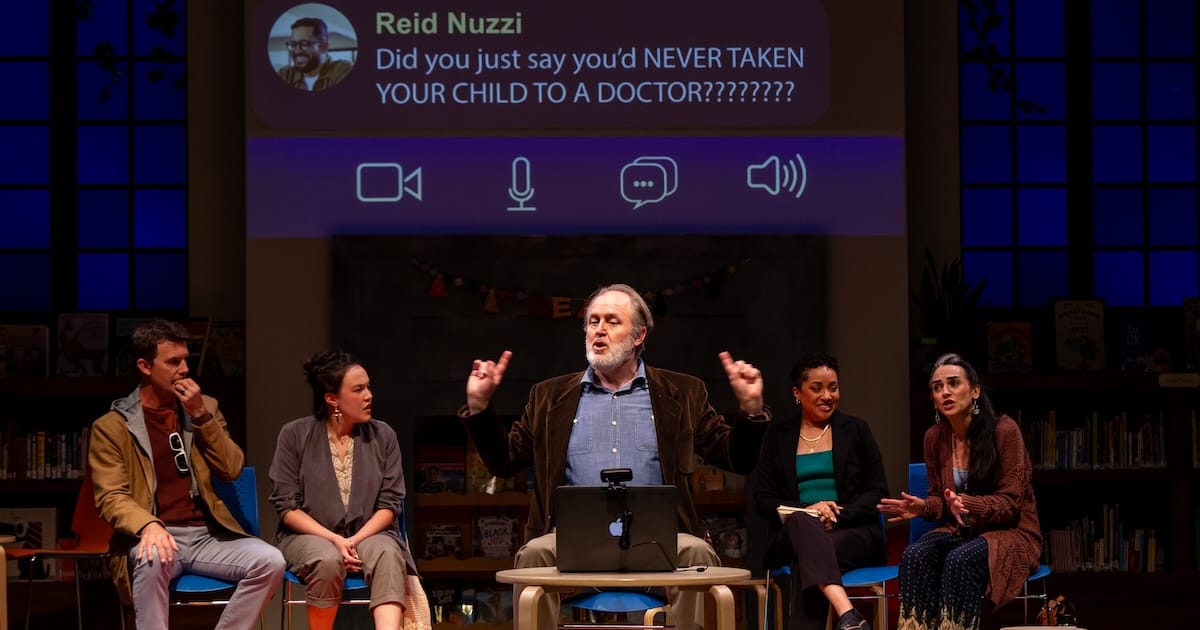

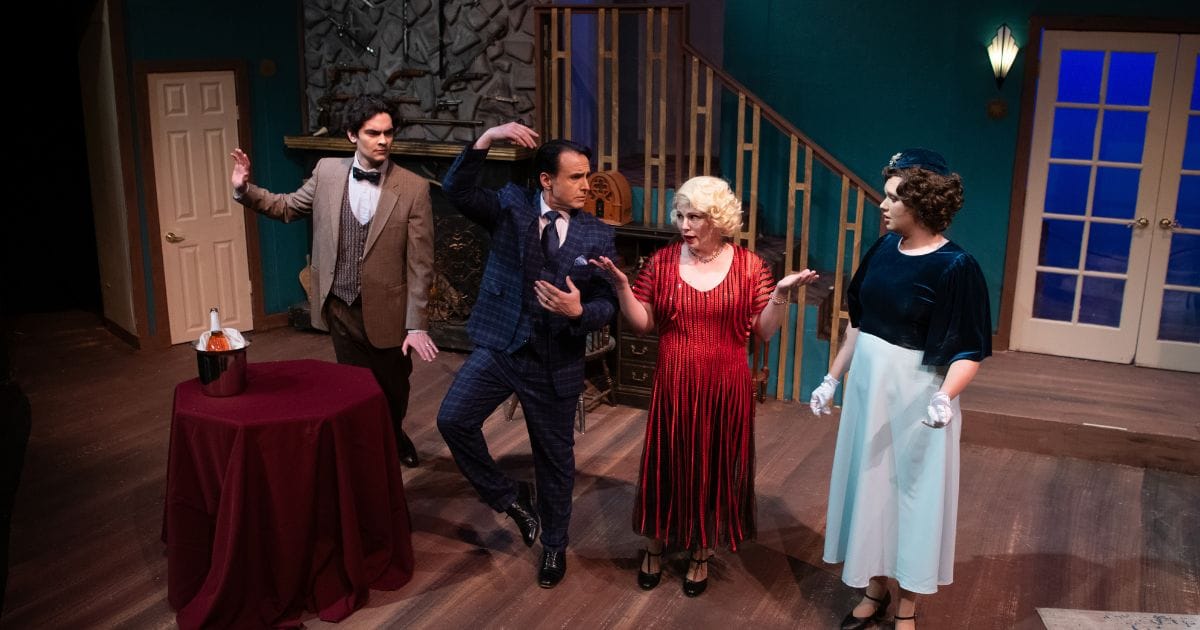
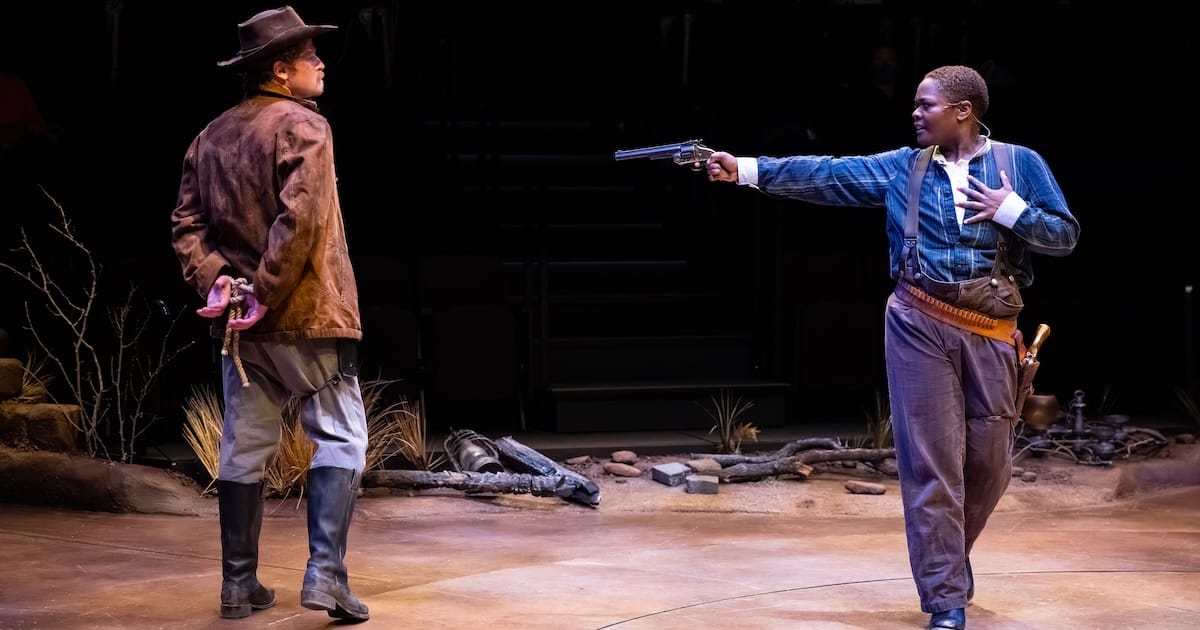
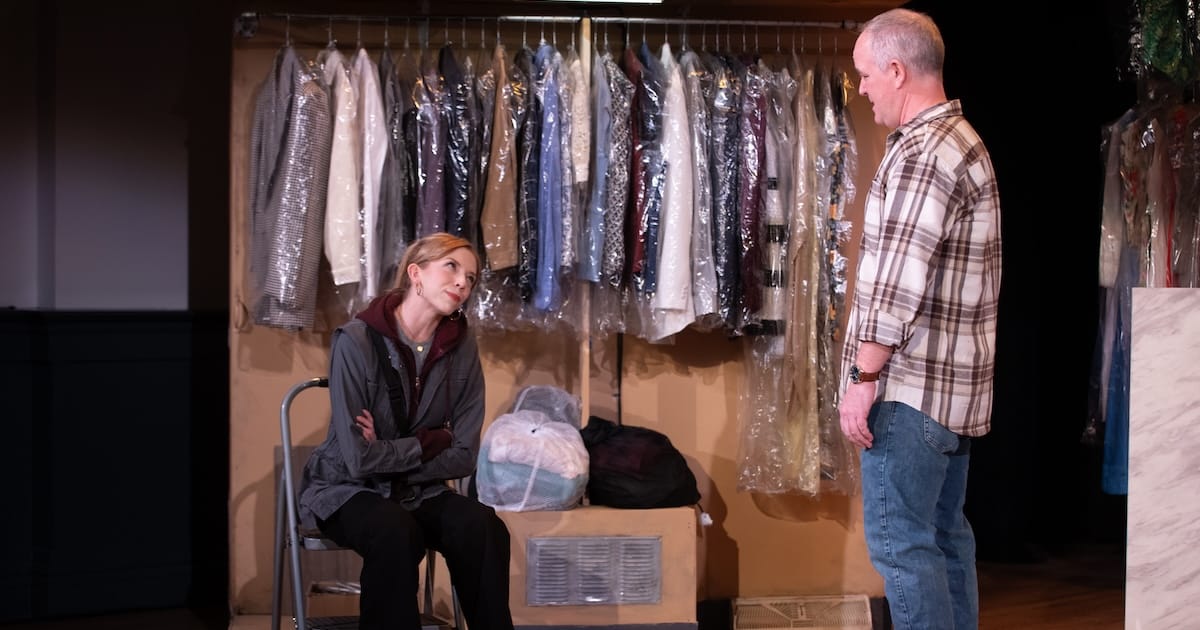

Leave A Comment